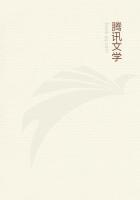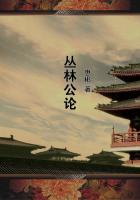If the teacher happens to be a man of sense, it must be an unpleasant thing to him to be conscious, while he is lecturing his students, that he is either speaking or reading nonsense, or what is very little better than nonsense.It must, too, be unpleasant to him to observe that the greater part of his students desert his lectures, or perhaps attend upon them with plain enough marks of neglect, contempt, and derision.If he is obliged, therefore, to give a certain number of lectures, these motives alone, without any other interest, might dispose him to take some pains to give tolerably good ones.Several different expedients, however, may be fallen upon which will effectually blunt the edge of all those incitements to diligence.The teacher, instead of explaining to his pupils himself the science in which he proposes to instruct them, may read some book upon it; and if this book is written in a foreign and dead language, by interpreting it to them into their own; or, what would give him still less trouble, by ****** them interpret it to him, and by now and then ****** an occasional remark upon it, he may flatter himself that he is giving a lecture.The slightest degree of knowledge and application will enable him to do this without exposing himself to contempt or derision, or saying anything that is really foolish, absurd, or ridiculous.The discipline of the college, at the same time, may enable him to force all his pupils to the most regular attendance upon this sham lecture, and to maintain the most decent and respectful behaviour during the whole time of the performance.
The discipline of colleges and universities is in general contrived, not for the benefit of the students, but for the interest, or more properly speaking, for the ease of the masters.
Its object is, in all cases, to maintain the authority of the master, and whether he neglects or performs his duty, to oblige the students in all cases to behave to him, as if he performed it with the greatest diligence and ability.It seems to presume perfect wisdom and virtue in the one order, and the greatest weakness and folly in the other.Where the masters, however, really perform their duty, there are no examples, I believe, that the greater part of the students ever neglect theirs.No discipline is ever requisite to force attendance upon lectures which are really worth the attending, as is well known wherever any such lectures are given.Force and restraint may, no doubt, be in some degree requisite in order to oblige children, or very young boys, to attend to those parts of education which it is thought necessary for them to acquire during that early period of life; but after twelve or thirteen years of age, provided the master does his duty, force or restraint can scarce ever be necessary to carry on any part of education.Such is the generosity of the greater part of young men, that, so far from being disposed to neglect or despise the instructions of their master, provided he shows some serious intention of being of use to them, they are generally inclined to pardon a great deal of incorrectness in the performance of his duty, and sometimes even to conceal from the public a good deal of gross negligence.
Those parts of education, it is to be observed, for the teaching of which there are no public institutions, are generally the best taught.When a young man goes to a fencing or a dancing school, he does not indeed always learn to fence or to dance very well; but he seldom fails of learning to fence or to dance.The good effects of the riding school are not commonly so evident.
The expense of a riding school is so great, that in most places it is a public institution.The three most essential parts of literary education, to read, write, and account, it still continues to be more common to acquire in private than in public schools; and it very seldom happens that anybody fails of acquiring them to the degree in which it is necessary to acquire them.
In England the public schools are much less corrupted than the universities.In the schools the youth are taught, or at least may be taught, Greek and Latin; that is, everything which the masters pretend to teach, or which, it is expected, they should teach.In the universities the youth neither are taught, nor always can find any proper means of being taught, the sciences which it is the business of those incorporated bodies to teach.The reward of the schoolmaster in most cases depends principally, in some cases almost entirely, upon the fees or honoraries of his scholars.Schools have no exclusive privileges.
In order to obtain the honours of graduation, it is not necessary that a person should bring a certificate of his having studied a certain number of years at a public school.If upon examination he appears to understand what is taught there, no questions are asked about the place where he learnt it.
The parts of education which are commonly taught in universities, it may, perhaps, be said are not very well taught.
But had it not been for those institutions they would not have been commonly taught at all, and both the individual and the public would have suffered a good deal from the want of those important parts of education.
The present universities of Europe were originally, the greater part of them, ecclesiastical corporations, instituted for the education of churchmen.They were founded by the authority of the Pope, and were so entirely under his immediate protection, that their members, whether masters or students, had all of them what was then called the benefit of clergy, that is, were exempted from the civil jurisdiction of the countries in which their respective universities were situated, and were amenable only to the ecclesiastical tribunals.What was taught in the greater part of those universities was suitable to the end of their institution, either theology, or something that was merely preparatory to theology.















